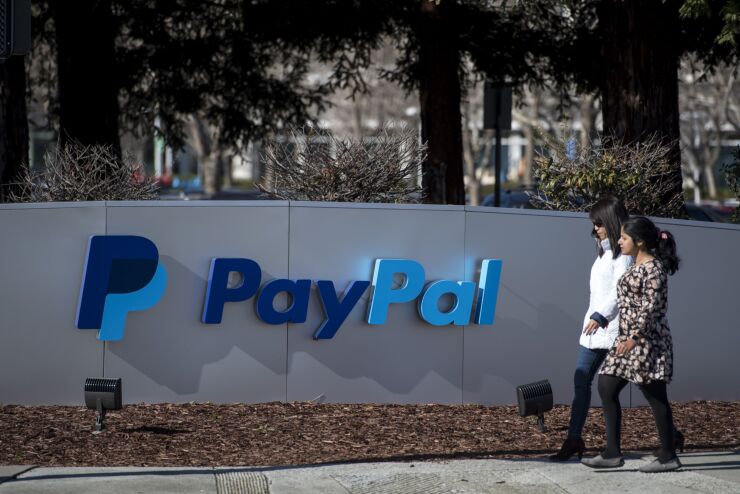PayPal wants to clear the way for its users to buy, sell, hold — and shop with —
It seems as if PayPal could use more cryptocurrency expertise before its services fully roll out next year. PayPal is in talks to acquire BitGo or another firm with experience serving as a custodian of cryptocurrency and crypto wallets, according to a recent Bloomberg report.
San Jose-based PayPal declined to comment on the report but some observers say it underscores PayPal's lack of certain infrastructure needed to effectively manage cryptocurrencies.
“One reason PayPal would want to buy a company like BitGo is that this industry requires a lot of specialized knowledge and hardware,” said Anthony Tu-Sekine, a partner with the law firm of Seward & Kissel LLP in Washington, D.C.
Another twist for PayPal is the need to inform customers of potential tax headaches that may result from buying and selling crypto, said Brett Cotler, an associate in Seward’s New York office who specializes in taxes.
“Under current U.S. law, any time a person uses cryptocurrencies for payments, it’s a taxable event, and a lot of casual PayPal users could end up being completely surprised by tax liabilities that could result from buying and selling bitcoin or other cryptocurrencies via PayPal,” Cotler said.

The IRS for the first time has included a question about
“The IRS moved the cryptocurrency question from a separate form to the body of the 1040 for the coming tax season, making it harder to escape liability for crypto profits,” he said.
Cotler speculated that the IRS made the change as a way to measure how many mainstream consumers who typically use Form 1040 are now transacting in cryptocurrency.
“The IRS is probably looking to raise awareness about who’s trading cryptocurrency to mine data and see how much trading volume is coming from U.S. IP addresses to conclude whether they have a compliance problem,” Cotler said.
A PayPal spokesperson said the company is working on education materials to help users understand potential tax implications of buying and selling crypto, and PayPal will provide tax documents for users who reach certain thresholds in states that require them.
"I don't think crypto's gone mainstream, but certainly the likes of PayPal and Square facilitating people owning and trading crypto helps," said Eric Grover, a principal with Intrepid Ventures LLC, adding that cryptocurrencies are still largely a speculative investment with limited use cases as a means of payment.





